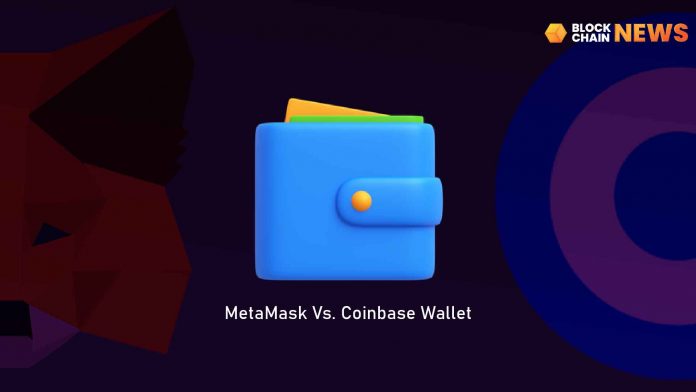Which is the best cryptocurrency wallet for you? The two biggest wallets for Ethereum are MetaMask and Coinbase Wallet. There are two significant ways to store your Ether on the blockchain: hardware and browser wallets. We will compare the MetaMask plugin and Coinbase Wallet and clarify their differences. Suppose you’re someone who wants the utmost privacy as well as their pros and cons. Check it out to see which option is the best option for you!
What is a Coinbase wallet?
With this wallet, you can store and receive Ether and other ERC20 tokens. This wallet is decentralized and runs on user-owned private keys. Coinbase is a client-side encryption wallet. This means they’re nosy, and there’s no risk of someone hacking in, decrypting your private key, and draining all your funds. To safeguard our clients’ information, Coinbase has partnered with Google Authenticator to allow you to protect the app with the highest level of security. It first supported the storage of ETH, Ethereum Classic ERC20 tokens when it was released in the ever-growing decentralized finance space.
What is MetaMask?
MetaMask has a lot of great features that make dealing with cryptocurrencies easier. One example is the integration of the token swapping feature on the app rather than using one specific decentralized exchange. This feature searches through the DeFi space and finds the best deals at the lowest prices. MetaMask streamlines the Ethereum blockchain experience by offering a simple and safe wallet that lets you get right to it.
Pros and Cons of Coinbase Wallet
Pros:
- Self-custodial wallet
- Designed by Coinbase’s world-leading exchange team
- Mobile app for Android and Apple
Cons:
- Not secure as it is a hot wallet
- One of the most centralized standalone wallets
Pros and Cons of MetaMask
Pros:
- Non-custodial and Open-source
- Supports all Ethereum tokens
- Easy to use
- Available on popular browsers
Cons:
- It is a hot wallet
Technical Comparison between Coinbase wallet and MetaMask
Coinbase wallet
- Coinbase is a hot wallet which is always connected to the internet. This makes it more convenient for users but also more vulnerable to hacking.
- Coinbase stores your private keys on its servers. If Coinbase is hacked, your private keys could be compromised.
- Coinbase supports a limited number of cryptocurrencies. Only Bitcoin, Ethereum, Litecoin, and Bitcoin Cash are currently supported.
MetaMask
- MetaMask is a cold wallet which can be used offline. This makes it more secure but also less convenient for users.
- MetaMask stores your private keys locally on your device. Even if MetaMask is hacked, your private keys would still be safe.
- MetaMask supports a wide range of cryptocurrencies. In addition to Bitcoin, Ethereum, and Litecoin, MetaMask supports Ethereum Classic, Augur, Golem, and many more.
Fees comparison between Coinbase wallet and MetaMask
Both charge Coinbase wallet and MetaMask a gas fee for each transaction. The gas fee is calculated based on the amount of data involved in the transaction and can range from a few cents to a few dollars. Coinbase offers fewer features than MetaMask does. The service fee for the coinbase wallet is around 1%, whereas the service fee for MetaMask is .875%.
Difference between Coinbase wallet and MetaMask (Table format)
| Coinbase wallet | MetaMask |
| 1. Keeps your private keys on their servers 2. More user-friendly 3. It can be used with Coinbase’s 4. Exchange and other services 5. Supported by Coinbase | 1. Keeps your private keys on your computer 2. Requires some technical knowledge to set up and use 3. It can be used with any Ethereum dApp 4. Supported by the MetaMask team |
Conclusion
So, which wallet should you choose? It depends on your needs and preferences. If you’re looking for an easy way to store and manage your cryptocurrency, Coinbase Wallet is a great option. However, if you’re looking for a more advanced wallet that allows you to interact with decentralized applications, MetaMask is the better choice.



